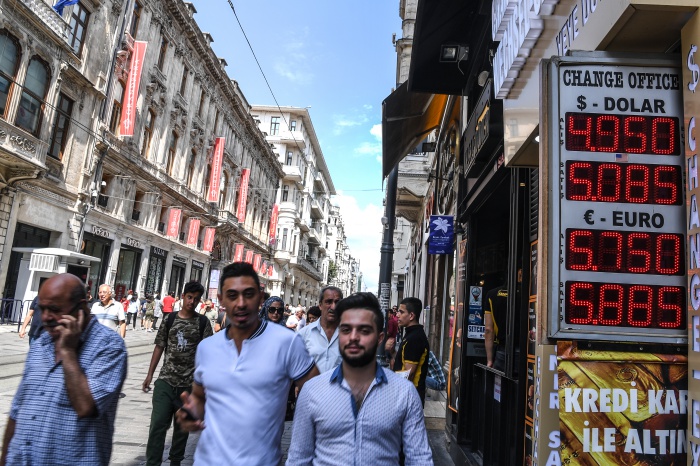Turkey’s July inflation hit its highest point in more than 14 years on Friday, reaching nearly 16 percent on an annual basis as food prices surged, reflecting the impact of a falling currency that the central bank has been unable to support, Reuters reported.
A sell-off in the lira – the currency has lost a fifth of its value against the dollar this year – has driven up prices of fuel, food and rent. The central bank’s reluctance to hike interest rates further has unnerved investors, who see it as under pressure from President Recep Tayyip Erdoğan.
Year-on-year inflation hit 15.85 percent in July, data from the Turkish Statistics Institute (TurkStat) showed, propelled by double-digit increases in transportation, household equipment and food costs. On a month-on-month basis, prices rose 0.55 percent, less than the 0.90 percent forecast in a Reuters poll.
“While the central bank faces pressure from the government not to do so, we think policymakers will ultimately tighten monetary conditions further,” said Jason Tuvey of Capital Economics in a note to clients. “We expect another 200 [basis points] of hikes in the one-week repo rate.”
The central bank last week surprised financial markets when it kept rates on hold. Erdoğan, a self-described “enemy of interest rates” who said prior to being re-elected in June that he planned to exercise greater control over monetary policy, has repeatedly called for cheaper borrowing costs.
Investor concern about his influence over monetary policy has been the main driver of the sell-off, although rising tension with the United States in recent days helped send the currency to new record lows.
Relations, strained for months over policy in Syria, Iran sanctions and other issues, hit a fresh low on Wednesday when Washington imposed sanctions on two Turkish ministers over the terrorism trial of a US pastor accused of supporting a group Ankara blames for a failed 2016 coup. Pastor Andrew Brunson denies the charges; Washington has called him a Turkish hostage.
Finance and Treasury Minister Berat Albayrak said the central bank may have been correct not to raise interest rates last week, adding that he expected positive developments towards the end of the year on inflation, which he predicted would fall to single figures in 2019.
Earlier this week the central bank sharply raised its 2019 year-end inflation forecast to 9.3 percent, from a previous forecast of 6.5 percent.
Albayrak, who is also Erdoğan’s son-in-law, told broadcaster NTV that his primary target was reducing inflation and interest rates.
Producer prices rose 1.77 percent month-on-month in July for an annual rise of 25 percent.
